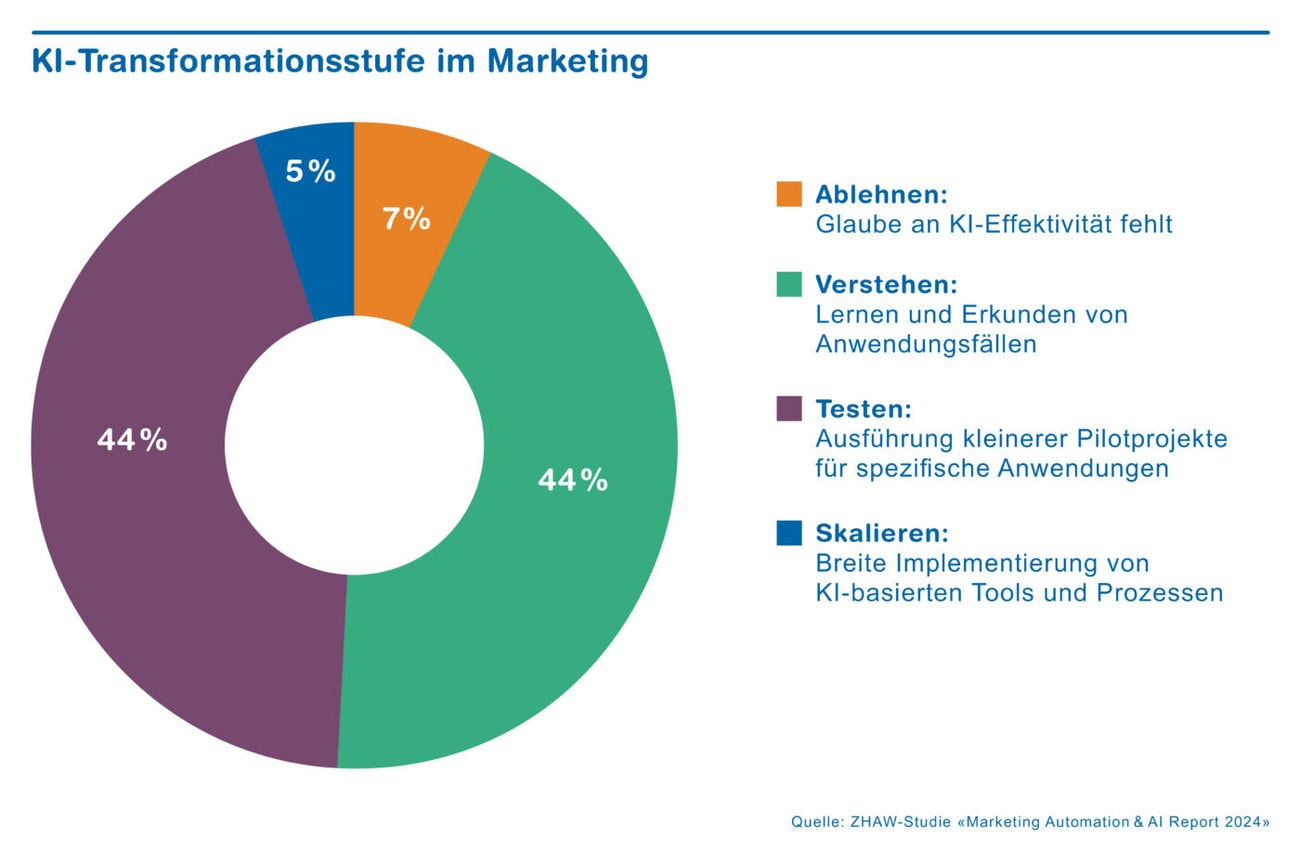Companies' lead management is not very automated
The use of artificial intelligence (AI) is becoming increasingly important in lead management. However, although companies see the benefits and potential of AI and automation, few are using it. This is shown by the latest Marketing Automation & AI Report from the ZHAW.

The study by the Institute of Marketing Management at the ZHAW School of Management and Law examined the maturity level of companies' lead management. 385 companies from Switzerland and Germany were surveyed in the areas of lead research, lead generation, lead engagement, lead scoring and lead automation.
Use of AI and automation can be greatly expanded
The average Lead Automation Maturity Index (LAMI), i.e. the maturity level of automation in lead management, is just 36 points on a scale of 0 to 100 for the companies surveyed. Individual sectors such as technology providers and service providers are slightly higher. Only five percent are already very far along in the scaling phase with AI and have implemented AI-based tools widely in their business processes. Almost half of the companies surveyed (44%) are still in the learning phase, want to understand AI use cases in their business and are exploring initial use cases. A further 44 percent are carrying out smaller pilot projects for specific AI applications and are in the testing phase. Only seven percent do not believe in AI and categorically reject it.
AI use cases in lead management
Automated personalization of emails is increasingly being generated with AI. The majority of respondents see the recognition of leads' willingness to buy through AI as a major advantage. Almost half consider it valuable to increase the deliverability of emails and social media engagement thanks to AI. The companies surveyed also consider it advantageous to dynamically adapt the content of their website based on user behaviour (43%) or even customize it (27%).
"In the survey, we found that 56% of companies are still scoring their leads manually. There is considerable potential here for increasing efficiency through automation and the use of AI," says Darius Zumstein from the Institute of Marketing Management at the ZHAW School of Management and Law, who is responsible for the study.
LinkedIn is the most important channel for contact data
At 58%, LinkedIn is the most important source of contact data in lead research, followed by events and personal recommendations. "This underlines the importance of social networks and direct interactions in the B2B sector for data collection and sales," says Darius Zumstein. In lead engagement, 41% also prefer personal interaction with (potential) prospects. Despite advancing digitalization and the availability of AI-supported tools, personal interactions and networks continue to play a central role in lead management.
High potential for automation
Despite the importance of personal interactions, there is a clear need for further automation and increased efficiency in order to fully exploit the potential of modern technologies. The study authors emphasize the high, transformative potential of AI and automation for marketing strategies and customer communication. "Companies that use AI technologies can significantly increase efficiency in lead generation and qualification through more precise customer data analysis, improved predictions of customer behaviour and personalized marketing approaches," says Darius Zumstein. So far, limited resources and a lack of skills are the biggest obstacles to the introduction of AI in marketing for 72 percent of respondents.
At Marketing Automation & AI Report of the ZHAW The research partners Cotide (Marc Gasser and Virginie Cantin), Mayoris (Urs Thüring), Atedo (Daniel Kölle), Webalyse (Klaus Völk) and Advanis (Markus Vesely) took part in the project.










